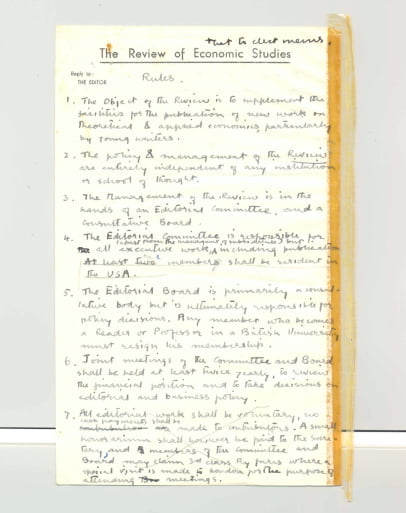History of The Review
Since its inception, the Board of Editors of the Review of Economic Studies has functioned independently of any university department or learned society. The Review of Economic Studies is essential reading for economists. It is one of the core economics journals, consistently ranking among the top five titles.
The inaugural meeting of the Board of Editors took place on the afternoon of Tuesday 17th January 1933 and was hosted by the London School of Economics.
At this meeting the Board elected the theorist Harold Barger as its first chairman and the founding Managing Editors were Abba Lerner, Walter Rudlin and Paul Sweezy. The other founding members of the board were Solomon Adler, R. Allen, Ralph Arakie, A. Emanuel, L. Fraser, R. Goldsmith, John Hicks, W. Handler, M. Joseph, Nicholas Kaldor, A. Neumann, Joan Robinson, C. Walker and Ursula Webb Hicks.



